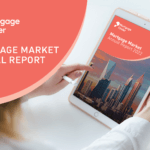Abu Dhabi, the capital of the United Arab Emirates, attracts expats from across the world each year. The emirate offers great options for both renters and would-be buyers. As such, the debate around renting or buying is one that comes up often. Ben Crompton, Managing Partner of Crompton Partners, shares his insights into the market and renting vs. buying in Abu Dhabi.

Understanding the Abu Dhabi property market
Abu Dhabi opened the property market to non-UAE nationals back in 2005, allowing expats to purchase property in designated ‘investment zones’. Over the years the number of investment zones where expats can purchase property has increased and there are now 30 different areas, some more established than others. This opening of the market to non-UAE nationals was the first step towards encouraging expats to invest in Abu Dhabi real estate. Further changes have been introduced over the years by the government to make buying in Abu Dhabi more favourable to expats.
Two changes in particular that are worth noting are the implementation of title deeds and the introduction of freehold ownership.
Previously, when buying a property as an expat you would be limited to owning the property under a 99-year lease. Further, your only proof of ownership would be the sales purchase agreement (SPA). This did leave some buyers with a level of insecurity.
However, this all changed recently as the system moved to freehold ownership, so buyers completely own their property and are provided with a title deed to show proof of this. There’s consequently more security around buying in Abu Dhabi now that there hasn’t been historically.
Adding to this, there is also a lot more security surrounding buying off-plan in Abu Dhabi as well. In 2015 a law was announced which aims to help protect your money when investing in off-plan builds in Abu Dhabi. The law brought in rules surrounding how developers can use the money that you put down. So, if you buy off-plan, the developers are no longer able to use those initial payments you make and put them into another project. The funds are held in escrow accounts and they can only be released to the project once milestones have been met. In addition to this, there are penalties for late delivery of projects by developers too.
The conclusion to all this is that the idea of being an investor or owner-occupier in Abu Dhabi is a lot more attractive today than it has been in previous years.
Owner-occupier vs. tenant – the Abu Dhabi rental market
Many of the changes to rules around owning property in Abu Dhabi have been introduced to encourage more owner-occupiers. The government and regulators generally prefer owner-occupiers, over investors who rent out their properties, as it keeps a skilled workforce in the country and also means that the people living in the properties are more likely to look after them.
For the prospective tenant though, the question is always “Which is more cost-effective? Am I going to save more money by buying or renting?”
This really depends on two factors – the rental yields in the area that you are looking at and the interest rates on the loans you can get.
Rental yields in Abu Dhabi
Abu Dhabi is a pretty high-yield investment area. Gross yield in almost every area is between 6% and 8% in the very least – which means that the rental for a year is between 6% and 8% of the property value. If the property is worth a million dirhams, you know you will be paying AED 60,000 to AED 80,000 per year on that property as rent.
Comparing rent to mortgage interest
Interest rates are somewhere around 4% depending on your deal. When you compare that to the rental yield, you can immediately see how being an owner-occupier is going to save you money over renting. 4% means AED 40,000 in repayments if you borrow a million to buy the property, saving you at least AED 20,000 a year in rent! You would in-fact only be borrowing AED 750,000 as you need a deposit of 25% in cash, so your repayments would be even lower at around AED 30,000.
This is not always the case elsewhere in the world. Some places, like New York or London, have much lower rental yields around 2% – naturally it almost makes more sense to rent in those areas than buy.
Of course, this is a slight over-simplification and it we haven’t taken capital appreciation into account. Many people buy their properties because they are looking at the long-term investment of the value going up, but fundamentally, if you are just looking at day-to-day expenditure on the place where you live, it makes more sense to look at that distinction between rental yields and interest rates. In Abu Dhabi, when you do this, it’s clear that making the investment yourself to become an owner-occupier is the better choice.
Obstacles and fears to becoming an owner-occupier in Abu Dhabi
The biggest obstacle to buying is that people think it will be more expensive. As an expat, you need a 25% deposit and there is a fear that if the market goes down you might lose money at some point.
A second issue is not understanding the legal framework in Abu Dhabi. Mainly in terms of your protection as an owner and what happens when leaving the country whilst still owning the property.
Both of these concerns can be addressed quite easily.
You only ever crystallise a loss (or a gain) when you sell the property. By buying something that you can afford, means you can control when you sell it. You can make sure you never lose money while the market fluctuates and sell when the market is right for you.
When it comes to potentially moving away from Abu Dhabi and still owning the property, you can hand it over to a property management company who can look after it during any periods when it doesn’t make sense to sell. Plus, of course, a professional management company can help with all the local legal issues that may seem overwhelming.
You only lose money in property if you cannot control when you sell, and if you are sensible it can be easy to maintain that control.
Commitment to a future in Abu Dhabi
Many expats who move to Abu Dhabi have the intention to remain in the country for a limited period of time. Often potential buyers will raise this as a concern stopping them from committing to purchasing a property in the emirate. Some ask whether there is an optimum period of time in which they should remain in Abu Dhabi to make buying worthwhile. This is an easy calculation to work out what the costs are to buying and how long it would take you to pay that back and start making savings on what you would have paid in rent.
Those in this situation need to understand what the costs of buying are and at what point you make that money back and start saving on the rent that you would have paid.
In Abu Dhabi, buying is relatively cheap – the costs to buy are approximately 4% of the property purchase value, as you are required to pay fees such as Municipality and Bank Arrangement fees.
If we go back to the earlier example of purchasing a one million AED property which you’re renting for between 60,000 to 80,000 AED, you will make your money back in the first year and start to save in the second year on the rent you would have paid.
Your exit plan – preparing for change
Circumstances change so it is important that you feel comfortable and have an idea in place for what you are going to do if you decide to leave Abu Dhabi. For example, if you get a new fantastic job abroad, what will you do with your property here in the UAE?
The people that lose money are those who sell as a knee-jerk reaction. If, instead, you come into the situation with your eyes open and a well-made exit strategy, you can ensure you will always make the most out of your money.
From the outset, you should work with agents that you like and trust. Make sure you get a mortgage that has the necessary flexibility within it and find a property management agency who will give you peace of mind regarding what’s going on with your home while you are abroad.
By planning appropriately, you can save significantly on your housing costs by buying rather than renting. Even if you only plan to be here for a short time, getting somewhere you can afford and working with industry professionals who will make sure you are always in control.
By Ben Crompton, Managing Partner at Crompton Partners Estate Agents












